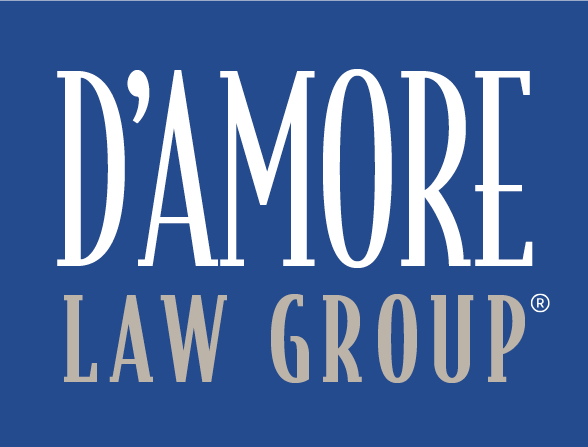Dedicated Washington Sexual Abuse Attorneys Will Fight for Your Rights If you or a loved one suffered the indignity of another person taking indecent liberties without your consent, you...
Read more
Sexual Abuse in Hospitals and Healthcare Facilities
Patients trust doctors, nurses, and other healthcare providers with their lives. While doctors may not be able to help a patient in every situation, they can certainly refrain from causing patients intentional harm. Perhaps the most egregious conduct a healthcare worker can engage in is the sexual abuse of a patient. While this behavior may seem unthinkable to many, sexual abuse, rape, and other forms of sexual misconduct occur far more frequently than most realize.
At D’Amore Law Group, we represent patients who have experienced sexual abuse at the hands of healthcare workers, helping them hold doctors, nurses, and other healthcare professionals accountable for their actions. We have more than 30 years of experience pursuing claims on behalf of sexual assault victims. We recognize that coming forward with your claim may be difficult, and we promise to do everything we can to make the process as easy on you as possible.
Contact us today at 503-222-6333 to discuss your case and learn how we can help you.
Sexual Abuse Statistics
The tragic reality is that sexual assault is pervasive in the United States. According to a report by the United States Department of Justice, nearly 52% of men and 66% of women report experiencing sexual abuse at some point in their life. However, most people do not expect this type of abuse to happen at the hands of a healthcare professional. Sadly, this scenario happens far too often. According to one survey, 9% of physicians report having engaged in sexual conduct with at least one patient. Due to the power dynamics involved in the doctor-patient relationship, any type of sexual contact between doctors and patients is suspect.
According to another 2017 study, the most likely perpetrator of patient sexual abuse is a male physician over 39 years old who is not board-certified and sees patients without anyone else present. In fact, 100% of respondents reported that male physicians committed the abuse.
While these statistics may seem shocking, many experts believe that physician sexual abuse is grossly underreported. In part, this is because patients may not know what is medically necessary and what constitutes abuse. Understandably, patients may also distrust the medical system after experiencing abuse and may not pursue a claim because they fear additional examinations and treatment from another healthcare provider.
Facilities Where Sexual Abuse May Occur
Most sexual abuse in the healthcare industry occurs when patients are alone with doctors. And the majority of those experiencing abuse are women. Thus, obstetricians and gynecologists are among the most frequently accused medical professionals. However, sexual abuse can occur in any healthcare setting, including:
- Hospitals,
- Emergency rooms,
- Doctors’ offices,
- Nursing homes, and
- Psychiatrists’ and psychologists’ offices.
Regardless of where the abuse occurred and what type of doctor committed the abuse, it constitutes a clear deviation from the standard of care doctors owe their patients. If you have any doubt whether what you experienced was abuse, it almost certainly was. At D’Amore Law Group, we are here for you. We can help you understand the process of bringing a claim against a healthcare professional so you can decide if it is something you want to pursue.
What Are the Types of Sexual Abuse That Can Occur in Healthcare Facilities?

Oregon law identifies 17 different types of sexual offenses. Most of these offenses involve physical contact of a sexual nature without the victim’s consent. However, some offenses do not require any physical contact. Below is a list of some of the more common types of sexual abuse in the healthcare setting.
Rape
Rape in healthcare occurs when a provider has non-consensual sexual intercourse with a patient.
Attempted Rape
Attempted rape occurs when a physician or other healthcare provider attempts to have sexual intercourse with a patient but is unsuccessful for any reason.
Sexual Assault
Sexual assault involves non-penetrative physical contact without a patient’s consent, such as an unnecessary or prolonged pelvic exam by a physician.
Sexual Abuse of a Minor
In Oregon and across the country, minors are especially susceptible to sexual abuse. Healthcare providers occupy a place of trust in society with parents and children. When providers violate that trust by sexually abusing a patient, they can—and should—be held accountable. At D’Amore Law Group, we want to help you hold your abuser accountable.
Aggressively Representing Survivors of Sexual Abuse
If you recently experienced healthcare sexual abuse, we want to help bring your abuser to justice. At D’Amore Law Group, we have a proven history of successfully handling patient sexual assault cases. Back in 2015, we represented several women who were sexually assaulted by Dr. Fred Field at Mid-Columbia Medical Center. One client went in for a routine visit requiring anesthesia. After sedating his patient, Dr. Field sexually assaulted her. After our client informed the Mid-Columbia Medical Center of the misconduct, the facility claimed she was “hallucinating” and did nothing. With our help, the patient filed a claim against Mid-Columbia Medical Center, and after a months-long trial, a Wasco County, Oregon jury awarded $950,000 in damages.
Additionally, we currently represent dozens of women who claim that Dr. David Farley sexually assaulted them by conducting unnecessary pelvic examinations.
Reach Out to a Dedicated Healthcare Sexual Assault Legal Team for Immediate Assistance
If you recently experienced sexual abuse at the hands of a healthcare professional, the compassionate lawyers at D’Amore Law Group want to help. We understand that in the wake of sexual abuse, the thought of bringing a lawsuit may seem overwhelming. When you are ready to talk about what happened, give us a call. We are here to listen and offer whatever assistance we can. When you bring a claim against an abusive healthcare professional, you are not only seeking justice for yourself but also helping future patients avoid what you went through. To learn more or to schedule a free consultation with one of our sexual assault advocates, give us a call or reach out through our online form.
